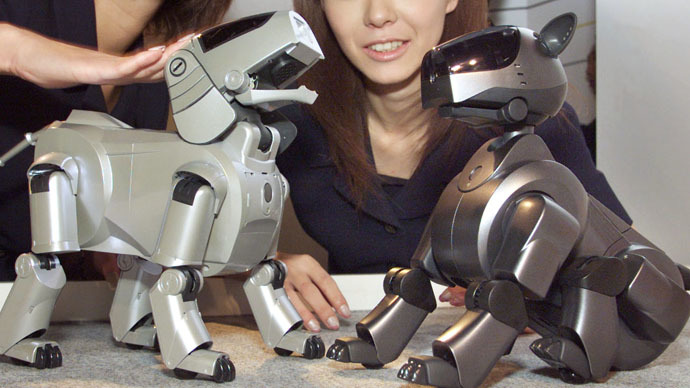Robotic pets could replace the real things in a few decades, according to an Australian based researcher. An increasingly urbanized population could mean real animals remain only for the super-rich, and robotic imitations could become the norm.
The paper was published by Dr Jean-Loup Rault, an animal welfare researcher from the University of Melbourne, who says the market for robotic pets will take off in the next 10 to 15 years, with large tech companies already jockeying for position in the new market.
The reasons for the possible shift from real pets to robotic versions are likely to be caused by the increasing urbanization of the planet. Currently, over half those in the Western world own a pet, with rapid growth in Asia, where having a domestic animal is seen as an example of one’s social status. However, with the global population expected to rise to almost 10 billion by 2050, Rault doesn’t see how keeping domesticated pet can remain viable.
“A more realistic future is that pets may become a luxury possession for people who can afford to sustain their cost and fulfill their needs in terms of space, social, and mental needs according to possibly higher ethical standards raised by future societies,” he said.
“We are possibly witnessing the dawn of a new era, the digital revolution with likely effects on pet ownership, similar to the industrial revolution which replaced animal power for petrol and electrical engines,” the animal welfare researcher wrote.
However, the researcher believes the possible explosion in popularity of virtual pets could be a double edged sword. On the one hand, it would allow the elderly and those with allergies to experience having a ‘pet.’ But if the population gets used to not having to feed or exercise a robotic pet, this could have a detrimental effect on the treatment of domesticated animals.
“If artificial pets can replicate the human benefits obtained from live pets, does that mean that the human–animal emotional bond is solely dependent on ourselves and the image that we project on a live or artificial interactive partner? Does it ethically matter if the benefits of keeping artificial pets outweigh the risks, sparing other live pets’ potential animal welfare issues?”.
Source: RT
N.H.Khider

